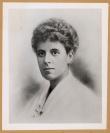Australian Colonial Narrative Journalism:
Besides being a poet and nurse, Grace Elizabeth Jennings Carmichael also wrote journalism. She wrote Hospital Children, Sketches of Life and Character in the Children’s Hospital Melbourne (1891) – a collection of articles previously published in periodicals and journals – which helped bring the suffering of the children to the attention of the reading public.
Jennings Carmichael wrote graphically for her audience about the impact on children of domestic violence, disease and neglect. Says historian Patricia Clarke: ‘She wrote of a child victim of a “terrible hip disease” who wasted away “with blanched face and emaciated frame…until the cross of flowers is made for another childish figure in its mortuary shrouds”; of typhoid epidemics and of battered children: “…a dear little lad who recounted the history of certain bruises so reluctantly, and after entering into the details of flogging with a rope’s end, while strapped to a table, added wistfully – “But don’t tell the other nurses; I don’t want to disgrace my father.” She wrote of child patients with hair so matted it had to be cut off, clothes so filthy they had to be burned and bodies so ingrained with dirt that they defied the best efforts with soap and water. She wrote also of the despair of seeing children return to hospital with a recurrence of illness after being neglected and allowed to roam cold, windy streets in ragged, thin clothing while their mothers were out earning a pittance washing, or out drinking’ (1988, p198-9).
Jennings Carmichael moved to England with her husband. He left her with a young family, and after she died her sons were put in an English poorhouse. Catherine Hay Thomson wrote a call for funds in the Argus in 1910, which raised enough money to help them. The Victorian government contributed by giving the three boys free passage home. They later dropped their father’s name and took their mother’s surname.
Bibliography:
 5242367573316092097.jpg
5242367573316092097.jpg
